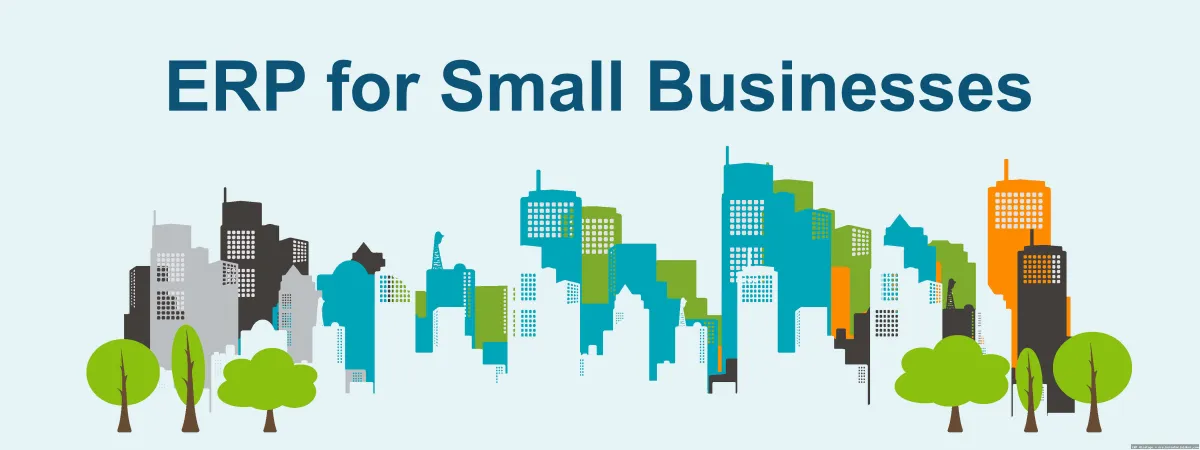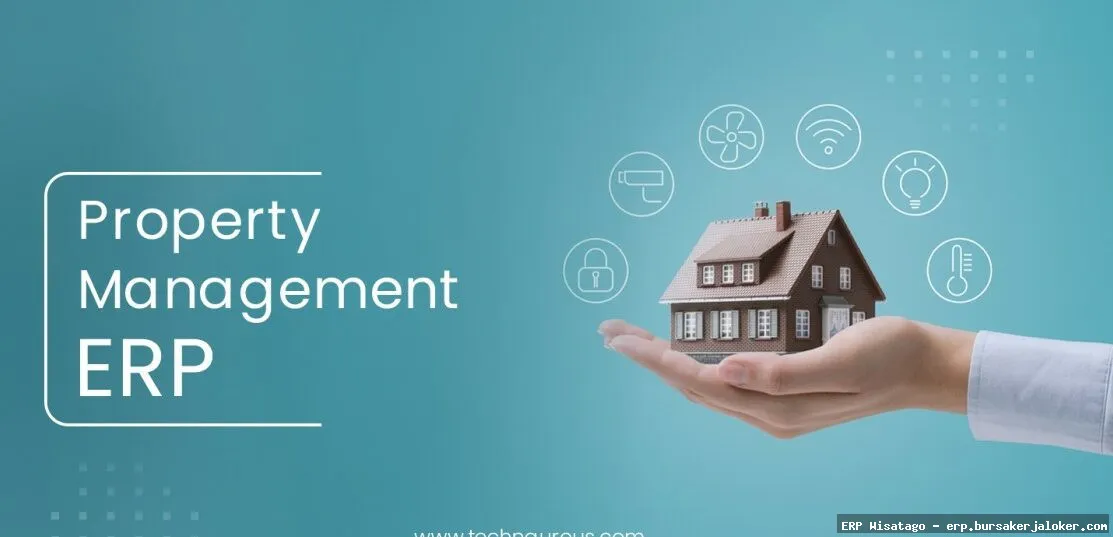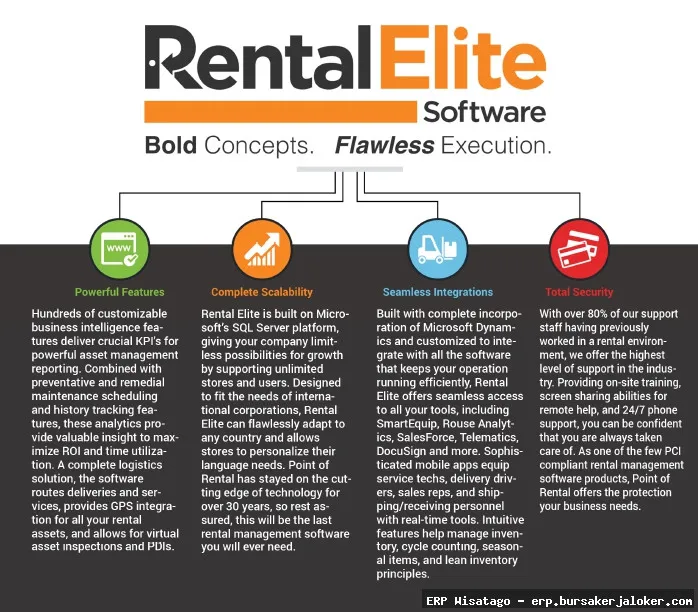Imagine running a rental business where you’re constantly juggling inventory, tracking equipment availability, managing reservations, and dealing with maintenance schedules. It’s a complex operation, and without the right tools, things can quickly become chaotic. Spreadsheets might work in the beginning, but as you grow, they become unwieldy and prone to errors. This is where Enterprise Resource Planning (ERP) systems come into play. ERP for rental businesses isn’t just about automation; it’s about gaining control, improving efficiency, and ultimately, boosting your bottom line.
Having spent years working with businesses that have implemented ERP systems, I’ve seen firsthand the transformative impact it can have, especially in the rental industry. From streamlining operations to providing real-time insights into key performance indicators (KPIs), a well-chosen and properly implemented ERP can be a game-changer. However, it’s crucial to understand that not all ERPs are created equal. Selecting the right solution requires careful consideration of your specific business needs and a realistic understanding of the implementation process.

This article aims to provide a comprehensive guide to ERP for rental businesses. We’ll delve into the key features and benefits, explore the challenges you might face during implementation, and offer practical advice on how to choose the best ERP system for your unique requirements. Whether you’re just starting to explore ERP or looking to upgrade your existing system, this guide will provide you with the knowledge and insights you need to make informed decisions and achieve long-term success.
What is ERP for Rental Businesses?
ERP for rental businesses is a software solution designed to integrate and automate core business processes specific to the rental industry. Unlike generic ERP systems, rental ERP solutions are tailored to handle the unique challenges of managing a fleet of rental assets, tracking availability, scheduling maintenance, and processing rental agreements. It’s a centralized system that connects various departments, such as sales, operations, finance, and customer service, providing a unified view of the entire business.
Key Differences Between Rental ERP and Generic ERP
While a generic ERP system can handle basic accounting and inventory management, it often lacks the specialized features required by rental businesses. Here’s a breakdown of the key differences:
- Asset Management: Rental ERPs excel at tracking individual assets, including their location, condition, and maintenance history. Generic ERPs typically focus on inventory quantity rather than individual asset attributes.
- Rental Agreements: Rental ERPs automate the creation, management, and tracking of rental agreements, including pricing, terms, and conditions. Generic ERPs lack this functionality.
- Availability Management: Rental ERPs provide real-time visibility into asset availability, allowing you to optimize utilization and avoid overbooking. Generic ERPs typically don’t consider asset availability in the context of rental schedules.
- Maintenance Scheduling: Rental ERPs help you schedule and track maintenance tasks, ensuring that your assets are in optimal condition. Generic ERPs may offer basic maintenance modules, but they often lack the specific features needed for rental equipment.
- Depreciation Calculation: Rental ERPs offer depreciation methods suitable for rental assets, taking into account usage and market value. Generic ERPs might have standard depreciation methods but not tailored for rental equipment.
Key Features of an ERP System for Rental Companies
A robust ERP system for rental companies should include a range of features designed to streamline operations and improve efficiency. Here are some of the most important features to look for:
Asset Management
This is the cornerstone of any rental ERP system. It allows you to track each individual asset, including its location, condition, maintenance history, and depreciation. Key features include:
- Asset Tracking: Real-time tracking of asset location using GPS or RFID technology.
- Asset Condition Monitoring: Recording and tracking the condition of assets, including photos and notes.
- Maintenance History: Detailed record of all maintenance tasks performed on each asset.
- Depreciation Calculation: Automated calculation of depreciation based on various methods.
Rental Agreement Management
This feature automates the creation, management, and tracking of rental agreements. Key features include:
- Agreement Creation: Generating rental agreements with pre-defined templates and customizable terms.
- Pricing Management: Setting up pricing rules based on rental duration, asset type, and customer.
- Agreement Tracking: Monitoring the status of rental agreements, including start and end dates, payment schedules, and return dates.
- Electronic Signatures: Enabling customers to sign rental agreements electronically.
Availability Management
This feature provides real-time visibility into asset availability, allowing you to optimize utilization and avoid overbooking. Key features include:
- Real-Time Availability: Showing the current availability of each asset.
- Reservation Management: Managing reservations and preventing overbooking.
- Scheduling: Scheduling rentals based on asset availability and customer requirements.
- Capacity Planning: Forecasting future demand and planning asset acquisitions accordingly.
Maintenance Management
This feature helps you schedule and track maintenance tasks, ensuring that your assets are in optimal condition. Key features include:
- Preventative Maintenance: Scheduling regular maintenance tasks to prevent breakdowns.
- Corrective Maintenance: Tracking and managing repairs.
- Maintenance Scheduling: Scheduling maintenance tasks based on asset usage and maintenance history.
- Parts Inventory: Managing the inventory of spare parts.
Inventory Management
While asset management focuses on individual rental items, inventory management tracks consumable goods and spare parts. Key features include:
- Stock Level Tracking: Monitoring inventory levels in real-time.
- Reordering: Automating the reordering of parts when stock levels fall below a certain threshold.
- Inventory Valuation: Calculating the value of your inventory.
- Waste Management: Tracking and managing waste.
Customer Relationship Management (CRM)
Integrating CRM functionality into your ERP system allows you to manage customer interactions and improve customer satisfaction. Key features include:
- Customer Database: Centralized database of customer information.
- Lead Management: Tracking and managing leads.
- Sales Management: Managing sales opportunities.
- Customer Service: Providing customer support and resolving issues.
Accounting and Finance
This module integrates with your accounting system to provide real-time financial data. Key features include:
- General Ledger: Managing your general ledger.
- Accounts Payable: Managing accounts payable.
- Accounts Receivable: Managing accounts receivable.
- Financial Reporting: Generating financial reports.
Benefits of Implementing ERP in Rental Businesses
Implementing an ERP system can bring numerous benefits to rental businesses, leading to improved efficiency, increased profitability, and enhanced customer satisfaction.
Improved Efficiency
By automating key processes, ERP systems eliminate manual tasks and reduce the risk of errors. This frees up employees to focus on more strategic activities, such as sales and customer service.
Increased Profitability
By optimizing asset utilization, reducing downtime, and improving inventory management, ERP systems can help rental businesses increase their profitability. Real-time data and reporting capabilities enable better decision-making.
Enhanced Customer Satisfaction
With improved customer relationship management (CRM) features, ERP systems enable rental businesses to provide better customer service and build stronger relationships. Faster response times and more accurate order fulfillment contribute to increased customer satisfaction.

Better Decision-Making
ERP systems provide real-time data and reporting capabilities, allowing managers to make more informed decisions. Access to accurate information empowers businesses to identify trends, anticipate problems, and optimize their operations.
Streamlined Operations
ERP systems integrate various departments and functions, creating a seamless flow of information. This eliminates silos and improves communication across the organization.
Challenges of ERP Implementation
While the benefits of ERP are undeniable, the implementation process can be challenging. It’s crucial to be aware of these challenges and plan accordingly.
High Costs
ERP systems can be expensive, both in terms of software licenses and implementation costs. It’s important to carefully consider your budget and choose a solution that fits your needs.
Complex Implementation
Implementing an ERP system is a complex process that requires careful planning and execution. It’s essential to have a dedicated project team and to work with experienced consultants.
Resistance to Change
Employees may resist the changes that come with implementing a new ERP system. It’s important to communicate the benefits of the system and provide adequate training.
Data Migration
Migrating data from legacy systems to the new ERP system can be a challenging task. It’s important to ensure that the data is accurate and complete.
Integration Issues
Integrating the ERP system with other applications can be complex. It’s important to choose a system that integrates well with your existing software.
Choosing the Right ERP System for Your Rental Business
Selecting the right ERP system is crucial for success. Here are some factors to consider when making your decision:
Identify Your Needs
Start by identifying your specific business needs and requirements. What are your pain points? What processes do you want to automate? What are your goals for the ERP system?
Research Different Solutions
Research different ERP solutions and compare their features and pricing. Read reviews and talk to other rental businesses that have implemented ERP systems.
Consider Cloud vs. On-Premise
Decide whether you want a cloud-based or on-premise ERP system. Cloud-based systems are typically less expensive and easier to implement, while on-premise systems offer more control and customization.
Check Integration Capabilities
Ensure that the ERP system integrates well with your existing software, such as your accounting system and CRM system. Effective IT management often requires a robust solution, and RMM offers one approach to streamlining those processes
.
Evaluate Vendor Support
Choose a vendor that offers excellent support and training. You’ll need ongoing support to ensure that the ERP system is running smoothly.
Request a Demo
Request a demo of the ERP system to see how it works and whether it meets your needs.

Conclusion
ERP for rental businesses is a powerful tool that can help you streamline operations, improve efficiency, and increase profitability. However, it’s important to choose the right solution and plan the implementation carefully. By understanding the key features and benefits of ERP, and by being aware of the challenges you might face, you can make informed decisions and achieve long-term success. The initial investment and effort are worth it, as a well-implemented ERP system can transform your rental business and give you a significant competitive advantage.
Remember to involve key stakeholders throughout the selection and implementation process, and to prioritize user training to ensure widespread adoption. Don’t be afraid to seek expert advice from consultants who specialize in ERP implementations for the rental industry. With careful planning and execution, you can unlock the full potential of ERP and take your rental business to the next level.
Frequently Asked Questions (FAQ) about ERP for rental businesses
What are the key benefits of implementing an ERP system for a rental business managing equipment and inventory?
Implementing an ERP (Enterprise Resource Planning) system for a rental business offers numerous advantages. First and foremost, it streamlines operations by centralizing data management, leading to improved efficiency. This includes better inventory tracking, ensuring you know exactly what equipment is available, where it is located, and its maintenance status. An ERP system also facilitates efficient scheduling and dispatching, optimizing resource utilization and minimizing downtime. Furthermore, it enhances financial management with automated billing, invoicing, and reporting, providing real-time insights into profitability. Finally, an ERP system can improve customer relationship management (CRM) by enabling better communication, personalized service, and streamlined rental processes, leading to increased customer satisfaction and loyalty. The overall result is improved operational efficiency, reduced costs, and increased profitability.
How can an ERP system help rental companies with preventative maintenance scheduling and tracking equipment repair history?
An ERP system plays a crucial role in managing preventative maintenance and tracking equipment repair history for rental companies. It allows businesses to schedule routine maintenance based on usage, time intervals, or manufacturer recommendations, ensuring equipment operates optimally and extends its lifespan. The system automatically generates maintenance work orders and alerts, preventing equipment failures and costly repairs. Furthermore, the ERP system meticulously records all repair activities, including parts used, labor hours, and costs. This comprehensive repair history provides valuable insights into equipment performance, identifies potential issues early, and aids in making informed decisions about equipment replacement or upgrades. By proactively managing maintenance, rental companies can minimize downtime, reduce repair expenses, and maximize the return on investment for their equipment.
What specific features should I look for in an ERP system designed specifically for rental businesses, considering things like rental contracts, pricing management, and availability calendars?
When selecting an ERP system for your rental business, prioritize features tailored to the unique demands of the industry. Look for robust rental contract management capabilities, allowing you to easily create, track, and manage rental agreements, including terms, conditions, and insurance details. Sophisticated pricing management is also essential, enabling you to define flexible pricing structures based on rental duration, equipment type, customer segment, and seasonality. Real-time availability calendars are crucial for managing your rental inventory efficiently, preventing overbooking, and optimizing resource allocation. Other important features include automated billing and invoicing, integrated CRM for managing customer interactions, and comprehensive reporting and analytics to track key performance indicators (KPIs) and make data-driven decisions. Choosing an ERP system with these specific features will streamline your operations, improve customer satisfaction, and boost profitability.
